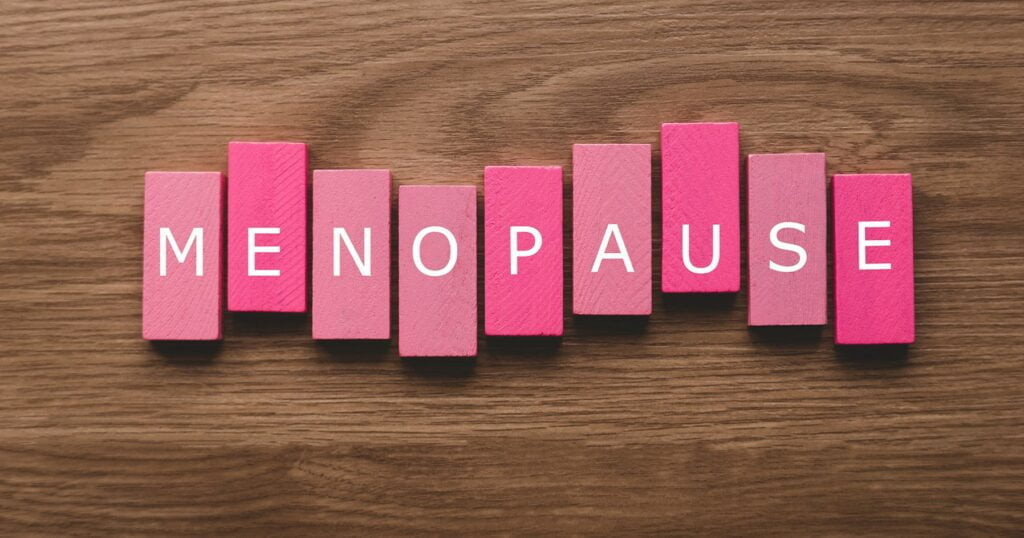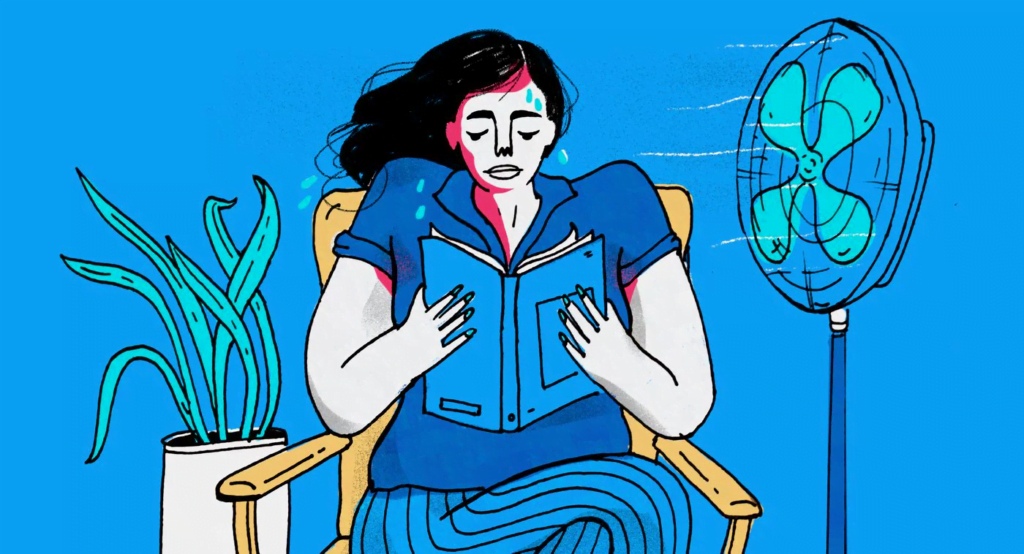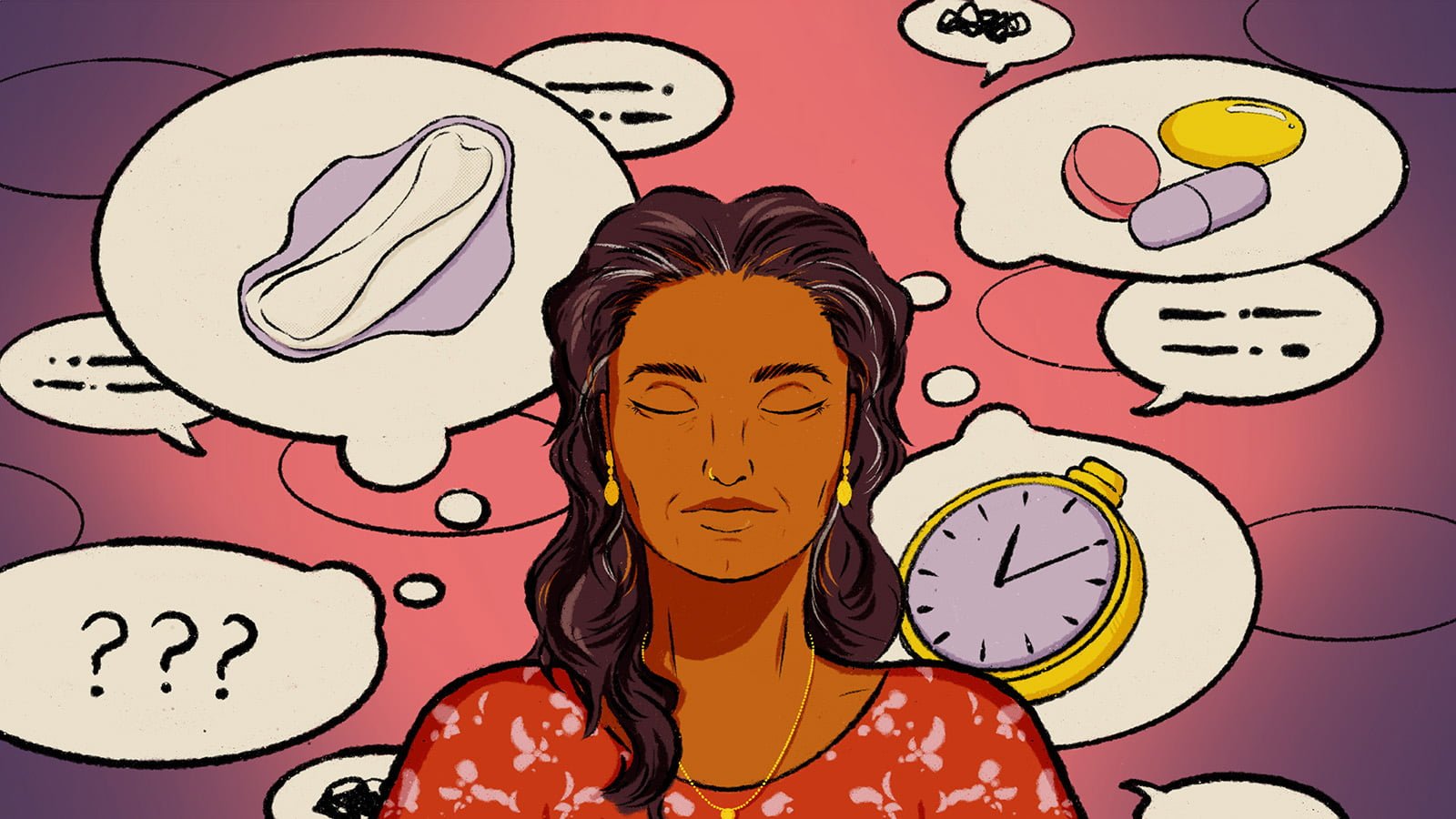Menopause is a real health issue faced by women, which often goes unnoticed and remains undiscussed. A survey conducted by Abbott, while partnering with Ipsos, found that 82 per cent of women believed that menopause affected their lives considerably. The survey took into account the voices of over 1200 women across 7 major Indian cities.
These women underlined the impact of menopause on their sexual lives, familial and social domain, and even their work lives. 81 per cent of women positively stated that menopause has an adverse effect on the professional aspect of their lives. However, despite such significant statistics, 79 per cent of women also claimed that they were uncomfortable discussing menopause with their friends, families, or colleagues.

This reveals that a concrete problem like menopause — with its physiological and psychological changes — remains in the realm of taboo, silence, and ignorance. Why is it that the discourse on menopause; a major stage in the lives of half of the population of the world is shrouded by hesitation and repression? It is indicative of a form of patriarchal mentality which cannot give due consideration to the problems faced by women.
Menopause is associated with middle-aged women from the ages of 40-55; it is a transitional stage in a woman’s life which is defined as a juncture when a woman does not experience the menstrual cycle for successive 12 months. However, the symptoms that attend this are not limited to that decisive moment but can affect a woman for years, both before and after menopause.
This necessitates the recognition of this phase in the larger social and professional environment of women. The physiological, emotional, and social baggage that comes along with this experience should be met with empathy and understanding in the workplace. This is important to promote inclusivity and progressive work culture.
Psycho-physical impact of menopause on women’s work lives
Menopause is not simply an end to the reproductive cycle of a woman. It is marked by several hormonal-biological changes creating emotional and physical challenges for women. These symptoms are not a fabrication of a woman’s mind but are traced to material changes in a woman’s body. Hot flashes, mood swings, brain fog, and excessive fatigue are some of the prominent signs of menopause.
Certain pertinent changes appear during the onset of menopause, or in other words, perimenopause. This stage causes actual visible changes to the physiography of the brain. Hormonal changes, such as oestrogen imbalance, affect the functioning of the brain. This causes episodes of confusion, tiredness, mind blocks, sleeplessness, and emotional vulnerability. This can become detrimental to the smooth working of a woman’s life.

These difficulties get aggravated by the pressures faced at the workplace. The corporate culture with its high workload, long hours, and claustrophobic working spaces could further prompt these symptoms. All of this combined leads to cases of depression among women. The dual forces of menopausal symptoms and a demanding work environment, coupled with the lack of any support system, make women less motivated and inclined to sustain their careers.
A study in the journal Menopause noted that women who experience the symptoms of menopause lose up to 60 per cent more workdays than their colleagues. Feelings of dejection and guilt accompany this depression as women’s performance gets affected by menopause.
The 2021 Fawcett Society report linked menopausal symptoms with a lack of motivation in applying for promotions, while an Australian survey discovered that menopausal women feel guilty for their apparent underperformance.
This emotional anxiety and self-reproach of women engendered out of limited productivity are products of the patriarchal and capitalist framework of the professional world. Every employee is valued for their economic addition to the organisation, and when women facing menopausal symptoms are unable to maximise this productivity, then they spiral towards such self-blame.
The lack of awareness and proper discursive channels related to menopause, due to dominant misogynistic outlooks, further add to women’s psychological misery.
Misogynistic silence on menopause in the workplace
Gender inequality is still a part of the commercial, professional sphere. It was a long struggle for women to gain acceptance and support for pregnancy breaks, maternity leaves, or childcare facilities. Menstrual leaves are still a debated topic in the workplace. However, menopause which deals with ageing and almost desexualised women is absent from these discourses on women’s concerns.
Childbirth is an integral part of the socio-economic fabric which means that it is incessantly present in the public mindscape. It is considered socially relevant with discussions on pro-life/pro-choice, parental duties, child health and education, and so on. It is a part of the economic sphere as these children represent the future workforce. Therefore, the workplace discourses readily adopted policies to accommodate pregnant, and even menstruating women.

On the other hand, menopause — which solely concerns and affects women — is seen as a personal problem of women not meriting social attention. There is already an unease in the patriarchal ideology to accept ageing women who are irrelevant to it due to their lack of sexuality and childbearing possibility. This is translated into either silence and oblivion around menopause or misogynist jokes and belittling of women’s issues.
This problem has also been internalised by women who refrain from speaking about these conditions in the workspace. First of all, women lack any vocabulary or proper means to address this problem as it is not even recognised as a problem in the larger social mindset. This leads to women trying to cope alone with these symptoms and often engaging with guilt over the work difficulties faced by them.

Secondly, even if some women understand that their problem is valid, then also they are reluctant to bring it to their employer’s notice. They fear that they would face backlash, discrimination, and insensitive response — which would add further setbacks to their careers, especially at a time when most people are making big strides in their careers to take up senior-level positions. Women also fear the stereotypes of being seen as troublemakers or attention-seekers if they speak up about their ‘feminine,’ concerns.
The otherness of women, or in other words, their experiences which are not felt by the other half are seen as inconsequential and termed as women’s hysteria or excuses. Their valid psycho-physical problems are invisible in the mainstream eyes which accounts for the lack of any proper measures to deal with menopause. A range of humour related to menopause might have emerged in the workspace, but there is hardly any serious discussion on it.
Taking a positive step
The first step towards rectifying this problem is creating awareness about menopause. Significantly, it surfaces in the workplace discourse, for instance, through sensitisation workshops, awareness programs, support groups, and even favourable policies. The ignorance around this seems to be universal — even women at times lack appropriate means to discuss and understand these changes — thus, there is a need for an overall acknowledgement of menopause and its issues in the professional space.
This discursive enlightenment needs to translate into material changes. There should be adequate support provided to women in the form of professional/medical help and workplace policies which adjust according to their menopausal needs. For instance, already COVID-19 has spurred the trend of hybrid or work-from-home settings; this flexibility should be extended to women who need a comfortable environment during bad days.

Finally, there is a need to validate women’s struggles. It is not just a woman’s responsibility to deal with something as universal as menopause. The socio-professional environment also needs to address, acknowledge, and adjust accordingly. In short, menopause needs to be recognised as a concrete problem which should be dealt with sensitively.





